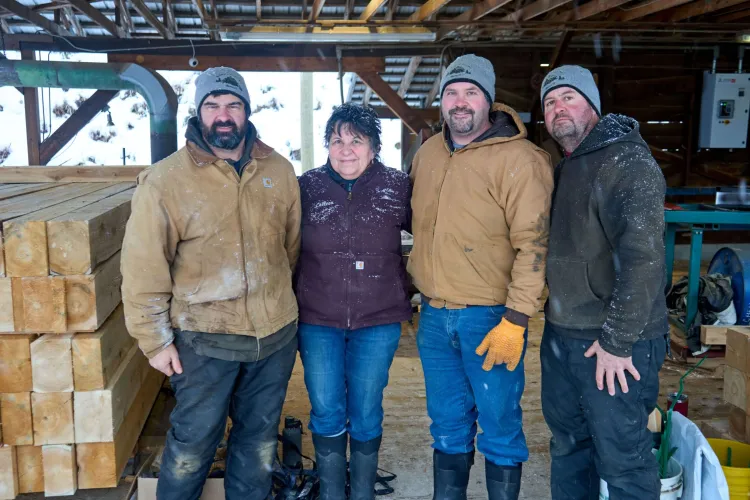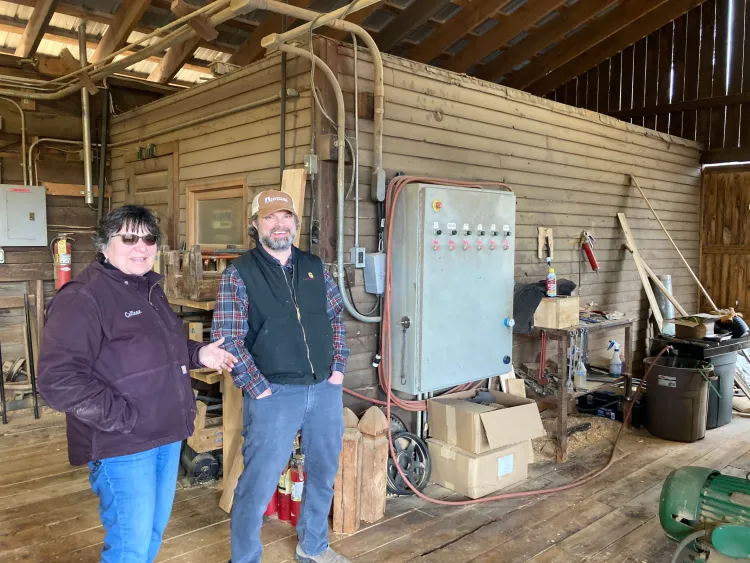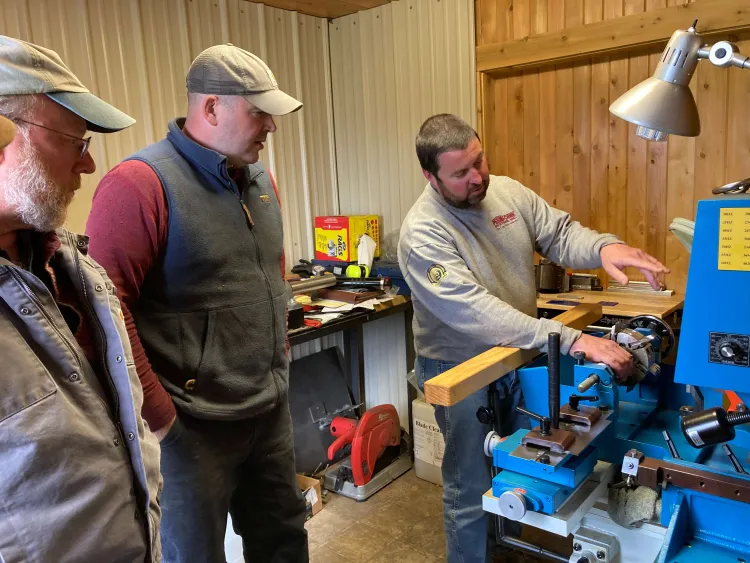For over 50 years, Goodridge Lumber, Inc. in Albany, Vermont, has been a vital part of the region’s forest-based economy, producing white cedar lumber for uses like interior paneling, decking, exterior siding, logs and siding for log home construction, woodchips for mulch and sawdust for bedding on local farms.
When the family-run business began planning for business expansion and succession a few years ago, they turned to the University of Vermont (UVM) Extension Forest Business Program (www.uvm.edu/extension/forest-business) for assistance in developing a strong business plan. The program provides businesses in Vermont’s forest products sector with management resources, skills development and one-on-one planning services to support the expansion of a sustainable forest economy in the Northeast.

Colleen Goodridge operates the family business with her sons Doug, Mark and Brian. Goodridge Lumber serves about 280 retail and 15 to 20 wholesale customers annually, building on the family’s reputation for integrity, hard work and a commitment to local production. They source the bulk of their log inventory within a 75-mile radius in northern Vermont, working with foresters, landowners, loggers and truckers within this region.
In late 2022, UVM Extension Forest Business Specialist Chris Lindgren and David Redmond, an independent forestry consultant, began working closely with them on the complex task of business succession planning, meeting regularly to address family dynamics, communication challenges, business plan components and strategic planning.
“Succession planning can be one of the most challenging and time-intensive aspects of business planning,” Lindgren explained. “It requires people to come together and align on their goals to set a clear path forward.”
A year into the planning process an opportunity arose to address an important need for the business: upgrading the mill’s power infrastructure with the help of a Working Lands Enterprise Initiative (WLEI) grant. So, the team pivoted away from succession planning and shifted their focus to obtaining a grant for the installation of a three-phase power electric system at the mill site.

Throughout fall 2023 and into 2024, Lindgren and Redmond spent considerable time helping Goodridge Lumber develop a tailored business plan by pulling together the necessary financial details, determining total project costs and calculating operational savings and efficiencies. They also looked at the economic benefit potential as part of the grant application and connected the Goodridges with staff at the Northern Forest Center (NFC) in Concord, New Hampshire, to assist with writing the WLEI grant application.
In March 2024, Goodridge Lumber was awarded just over $225,000 to fund their power upgrade, and by October 2024, the three-phase power electric system was successfully installed, marking a significant milestone for the family and their company. In addition to increasing profitability of the sawmill operation, the new system is estimated to save over 12,000 gallons of diesel fuel and 180,000 pounds of carbon emissions annually.
Colleen Goodridge said, "The power project was critical for mill operations, and we wouldn’t have been able to do the project without the grant. Chris and Dave guided us through the grant application process, answering questions, helping compile necessary information and connecting us with the NFC. Their expertise and assistance made all the difference, and the timing was perfect, as without that solid foundation of a business plan, we wouldn’t have secured the infrastructure funding, especially with so many applications in the pool.”
“Chris and Dave ran the numbers, helped us see the big picture and kept us focused on our long-term goals,” added Mark Goodridge. “The business planning services they provided were invaluable, and without their support, we wouldn’t have been able to secure the grant or make the necessary upgrades. It wouldn’t have happened.”
He continued, “The grant put the infrastructure in place to expand, explore new markets and be able to process other species like red pine.”

Redmond has continued to work with the family to complete their succession plan including setting owner salaries, establishing estate planning services with an estate attorney, creating a buy-sell agreement with another specialized attorney, assisting in the assessment and transfer of assets for reinvestment in the business and assigning other “homework” for the family.
Colleen Goodridge, reflecting on the experience, shared, “I would recommend that every business take advantage of business planning services. The expertise they provide is invaluable.”
